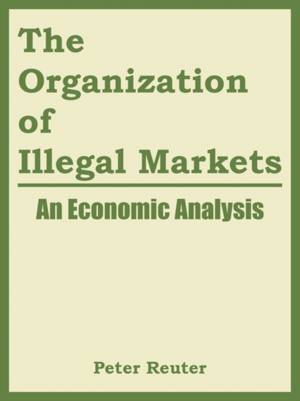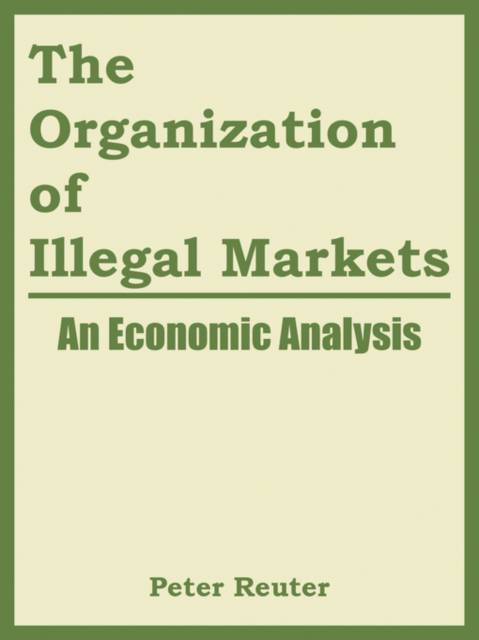
Bedankt voor het vertrouwen het afgelopen jaar! Om jou te bedanken bieden we GRATIS verzending (in België) aan op alles gedurende de hele maand januari.
- Afhalen na 1 uur in een winkel met voorraad
- In januari gratis thuislevering in België
- Ruim aanbod met 7 miljoen producten
Bedankt voor het vertrouwen het afgelopen jaar! Om jou te bedanken bieden we GRATIS verzending (in België) aan op alles gedurende de hele maand januari.
- Afhalen na 1 uur in een winkel met voorraad
- In januari gratis thuislevering in België
- Ruim aanbod met 7 miljoen producten
Zoeken
The Organization of Illegal Markets
An Economic Analysis
Peter Reuter, National Institute of Justice
Paperback | Engels
€ 21,95
+ 43 punten
Omschrijving
It is widely believed that monopoly control, based on violence, corruption or risk-spreading, is characteristic of markets for illegal goods and services, such as marijuana and bookmaking. This essay examines the effects on the organization of a market arising from changing the status of a good or service from legal to illegal. In general, it can be shown that illegal enterprises are likely to be smaller than their legal counterparts. The most important reasons for this are the lack of external credit markets, itself a consequence of the non-existence of audited records, the lack of court enforceable contracts, and the need to restrict knowledge of participation in the enterprise. The inability to advertise or to create goodwill for the enterprise itself, as opposed to goodwill for its agents, is also significant. Corruption is likely to affect the organization of the market only under special circumstances, where there is a single agency which monopolizes enforcement. Though that condition held for most illegal markets thirty years ago enforcement now is fragmented and overlapping, which inhibits an agency from granting a monopoly franchise. The introduction of violence does not in general change this result. The use of violence to acquire market power can occur only where there is a ready focus for that violence. Most illegal markets lack either time or space consistency that would permit exclusion of competition. Some comments about the optimal use of violence are offered. The final section offers some analysis of the plausibility of using illegal market enforcement as an instrument of organized crime control. There have been systematic changes in the set of opportunities available to organized crime members; illegal markets no longer are so central to the power and income of organized crime. The shift from gambling to narcotics markets has also weakened the link between organized crime and illegal markets.
Specificaties
Betrokkenen
- Auteur(s):
- Uitgeverij:
Inhoud
- Aantal bladzijden:
- 60
- Taal:
- Engels
Eigenschappen
- Productcode (EAN):
- 9781410217837
- Verschijningsdatum:
- 28/10/2004
- Uitvoering:
- Paperback
- Formaat:
- Trade paperback (VS)
- Afmetingen:
- 210 mm x 279 mm
- Gewicht:
- 158 g

Alleen bij Standaard Boekhandel
+ 43 punten op je klantenkaart van Standaard Boekhandel
Beoordelingen
We publiceren alleen reviews die voldoen aan de voorwaarden voor reviews. Bekijk onze voorwaarden voor reviews.









